In October, Admiral Christopher W. Grady, the Vice Chairman of the Joint Chiefs of Staff, joined faculty members at the University of Notre Dame for an update on the University’s research activities. Admiral Grady, a 1984 graduate of Notre Dame, is also a past recipient of the University’s Rev. William Corby, C.S.C., Award for distinguished military service.
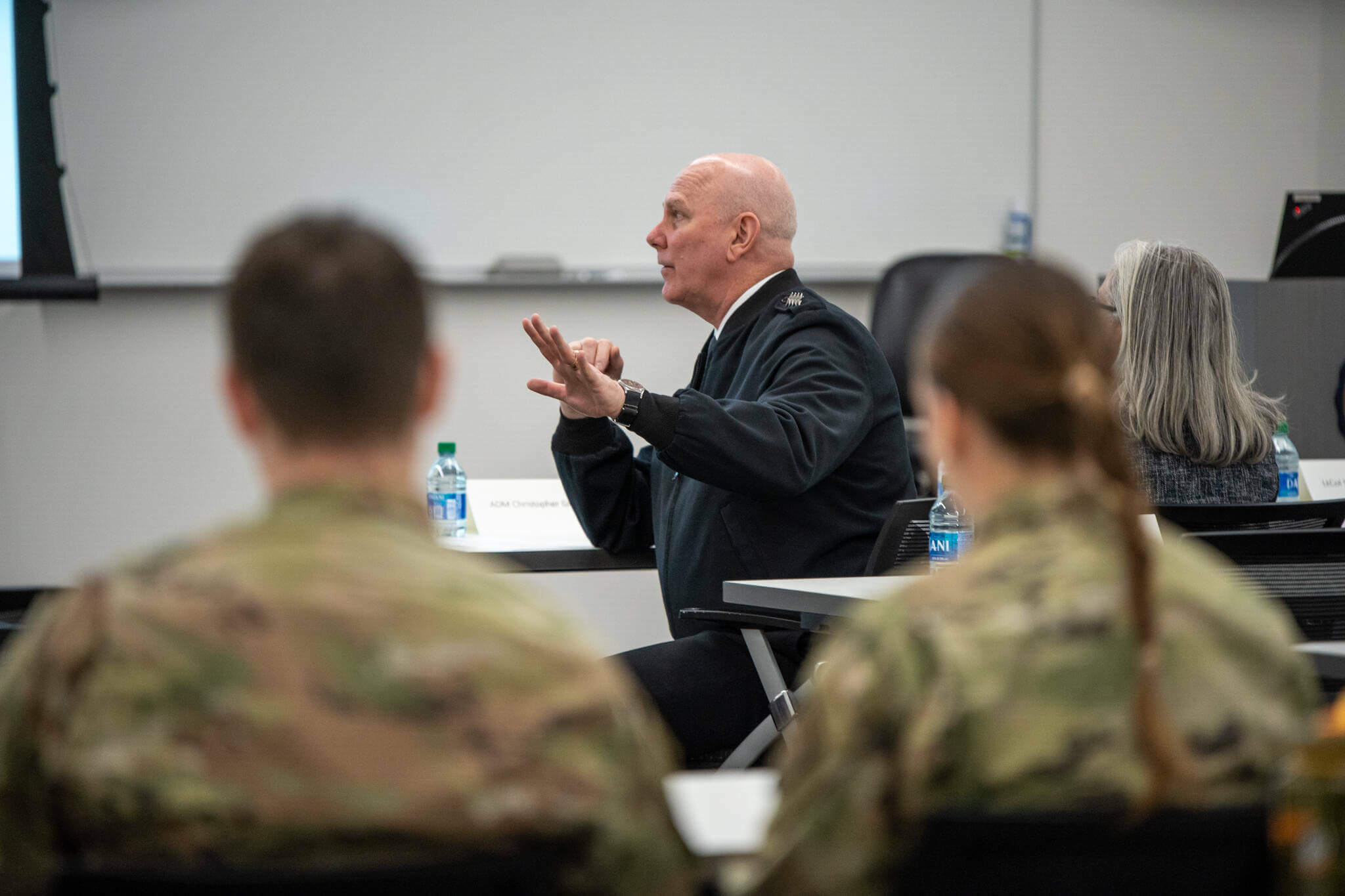
The four faculty-led sessions outlined innovative research being advanced at Notre Dame in artificial intelligence, wireless technology, infectious disease surveillance, and precision medicine—all critical technology areas for the Department of Defense.
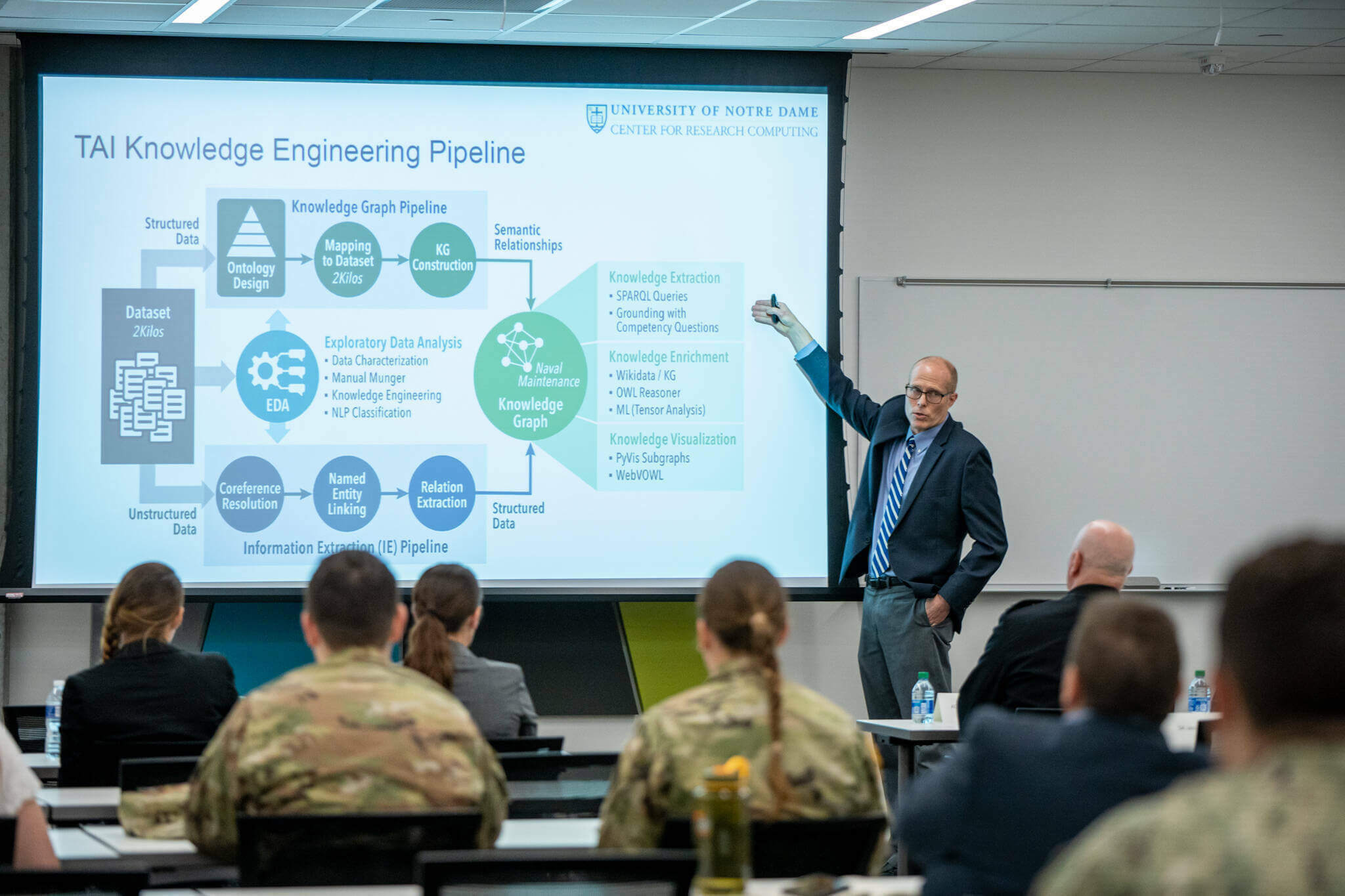
The first presenter was Paul Brenner, Senior Associate Director of the Center for Research Computing (CRC). Brenner shared the facets of trust identified by the CRC’s “Trusted AI” research project. Brenner also highlighted the ways the Trusted AI framework is being used to improve the maintenance of naval vessels, thanks to a collaboration with the Naval Surface Warfare Center, Crane Division (NSWC Crane), located in Crane, Indiana.
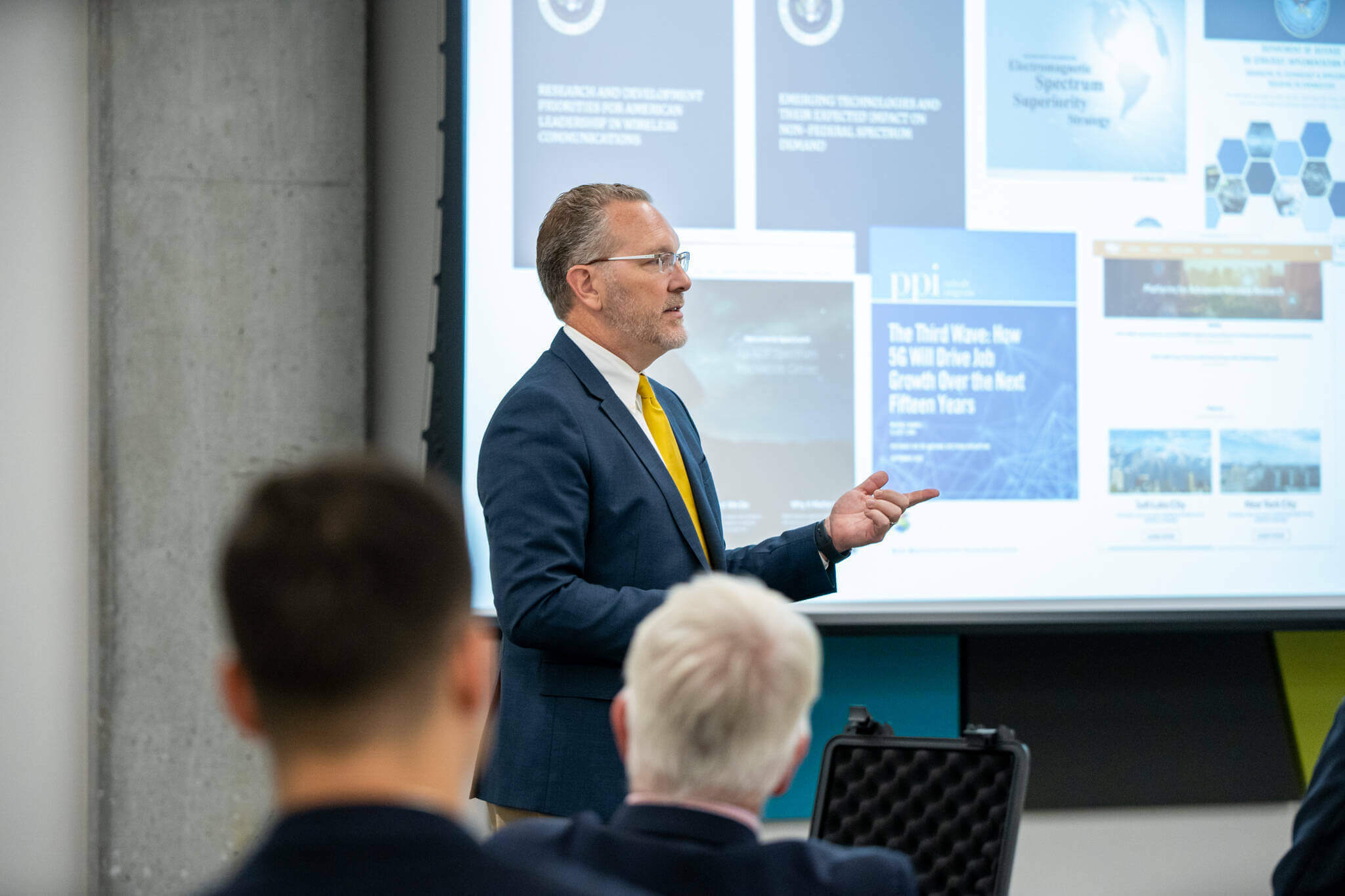
The second presentation, by Nicholas Laneman, shared the University’s recent efforts to promote better use of the wireless spectrum. Laneman, who is Co-Director of the University’s Wireless Institute and Director of SpectrumX, focused the presentation on wireless technology breakthroughs that can support military applications and on the urgent need to develop new curriculum to train future radio spectrum workers and innovators. and on the urgent need to develop new curriculum to train future radio spectrum workers and innovators.
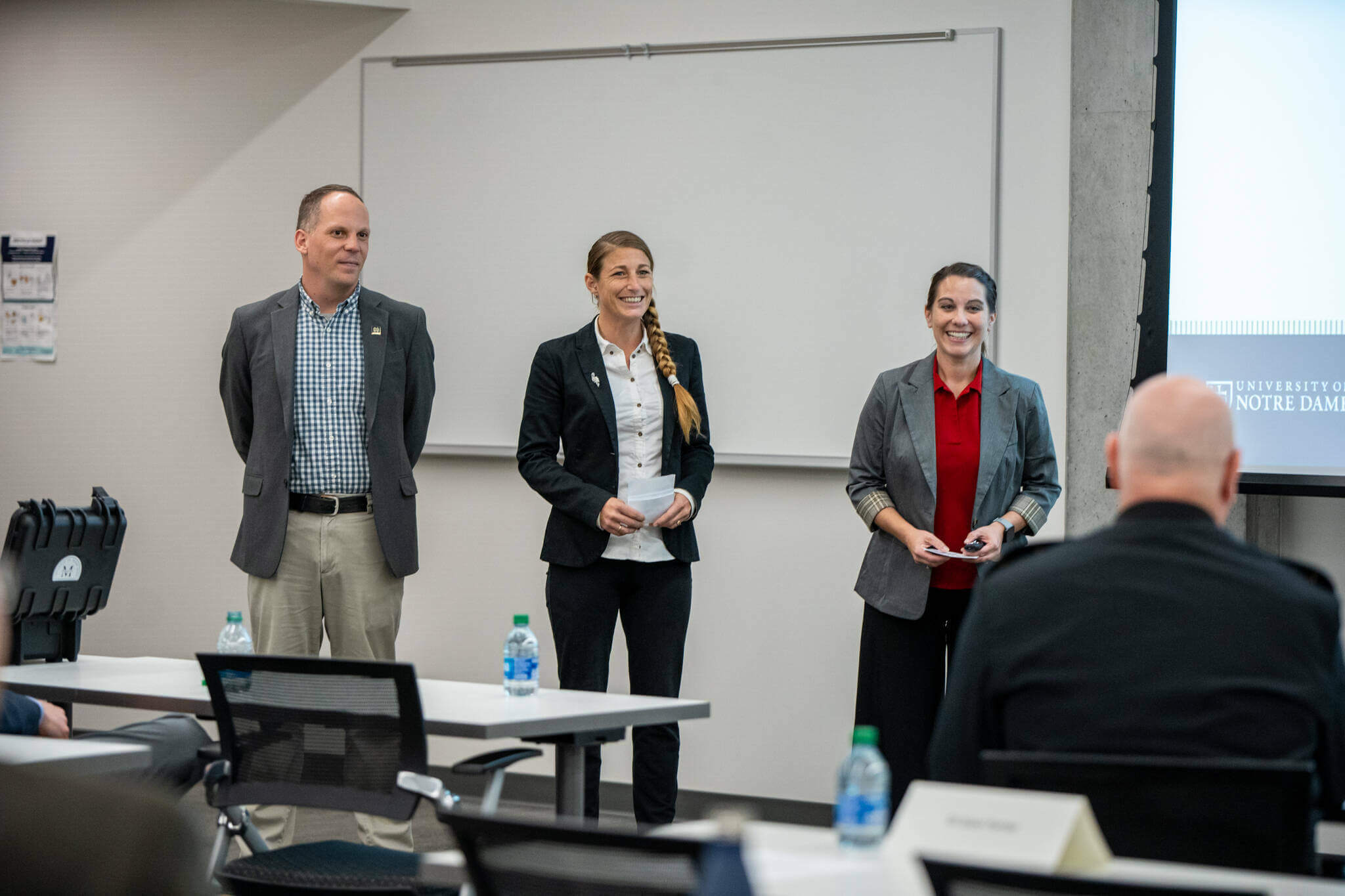
A third presentation focused on the Remote Emerging Disease Intelligence-NETwork (REDI-NET),* led by Notre Dame biologists Nicole L. Achee and John P. Grieco, both affiliates of the Eck Institute for Global Health, along with Le Jiang, a Scientist at the Naval Medical Research Center, and Yvonne-Marie Linton, the Research Director for the Walter Reed Biosystematics Unit. Presenters Maria Dahn, Benedicte Fustec, and Bradley Sandberg focused on REDI-NET’s potential to support the military in efforts to efficiently and effectively detect, predict, and contain zoonotic diseases by providing a central data repository for global surveillance that feeds into complex risk prediction models for Force Health Protection and Force Readiness decision-makers.
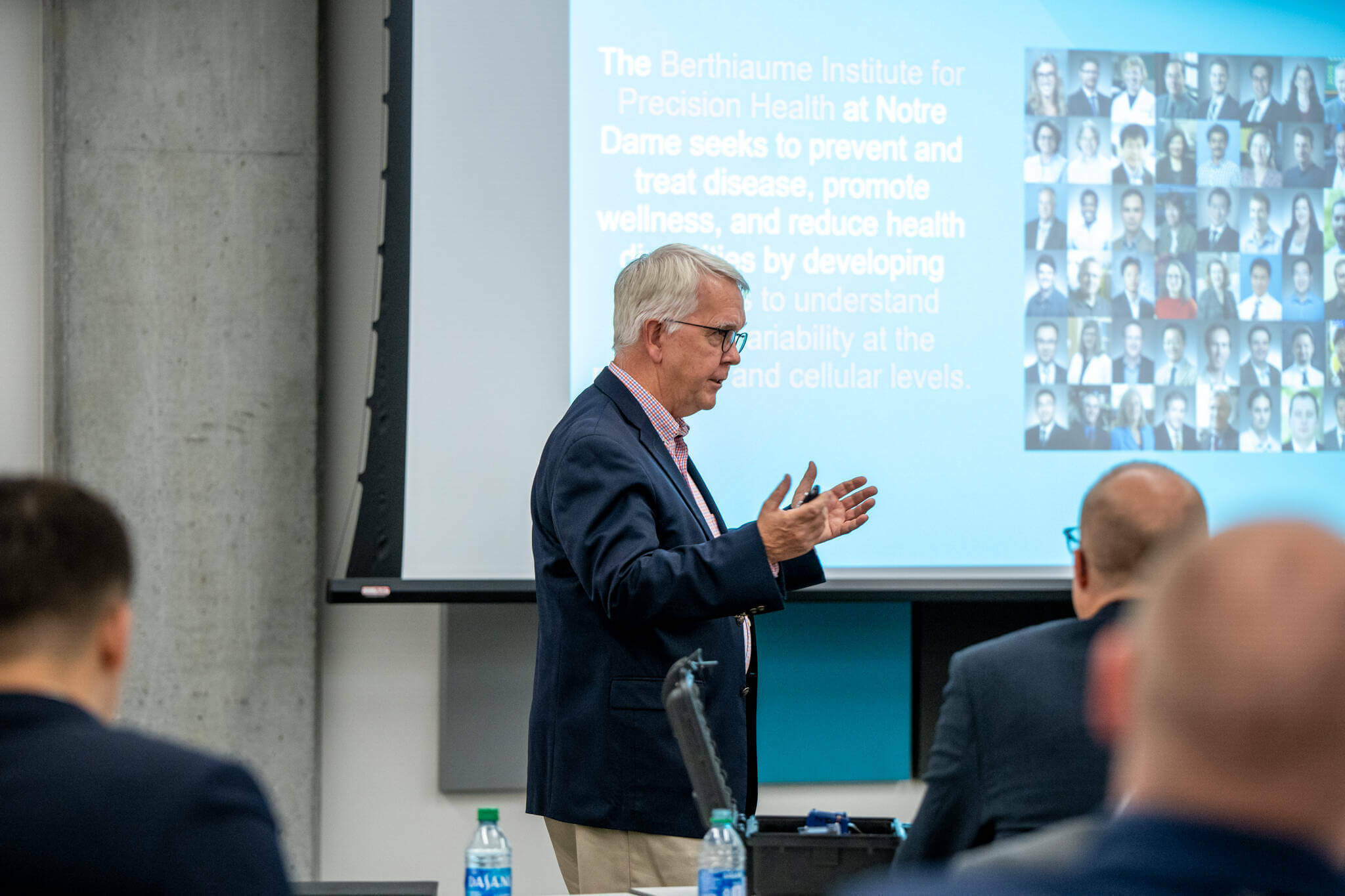
The fourth and final presentation was by Paul Bohn, the Arthur J. Schmitt Professor and Director of the Berthiaume Institute for Precision Health. Bohn focused on precision medicine and its potential military applications. Defining precision medicine as “delivering the right treatment, to the right person, at the right time,” Bohn displayed a prototype of a new wearable device for precise monitoring of an individual’s health and readiness. Bohn discussed the device’s potential for quickly assessing toxic components of the warfighter's environment as well as extensions to and other health challenges, such as traumatic brain injuries, faced by military personnel in the field.
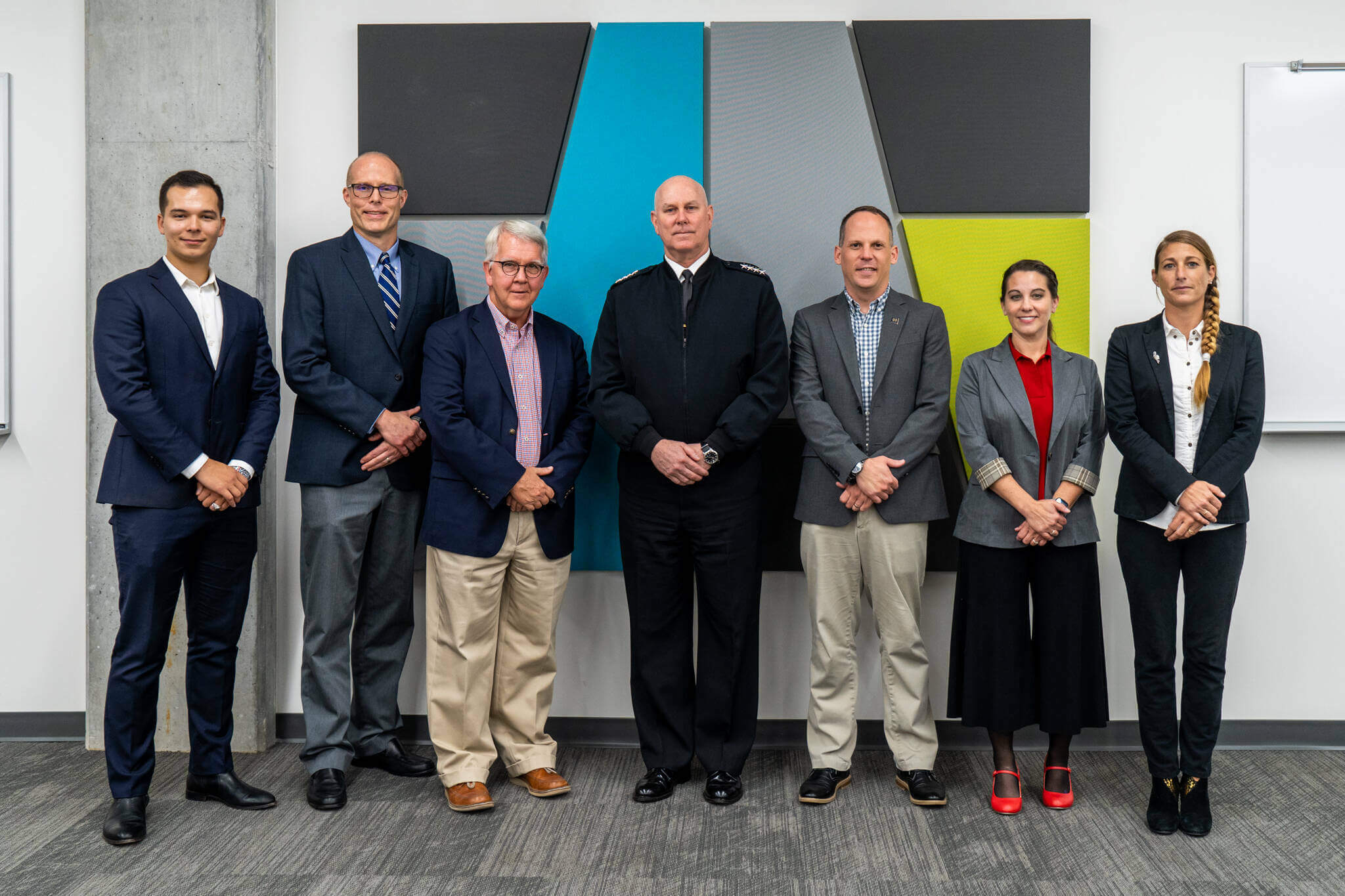
The faculty and staff presenters represent a small portion of the innovative research and workforce development initiatives being advanced at Notre Dame in support of our nation’s critical technology and security priorities.
Contact:
Brett Beasley / Writer and Editorial Program Manager
Notre Dame Research / University of Notre Dame
bbeasle1@nd.edu / 574.631.8183
research.nd.edu / @UNDResearch
About Notre Dame Research:
The University of Notre Dame is a private research and teaching university inspired by its Catholic mission. Located in South Bend, Indiana, its researchers are advancing human understanding through research, scholarship, education, and creative endeavor in order to be a repository for knowledge and a powerful means for doing good in the world. For more information, please see research.nd.edu or @UNDResearch.
*REDI-NET is supported by the US Army Medical Research and Development Command under Contract Nos. W81XWH-21-C-0001 and W81XWH-22-C-0093. The views, opinions and/or findings contained in this report are those of the author(s) and should not be construed as an official Department of the Army position, policy or decision unless so designated by other documentation.
Originally published by at research.nd.edu on November 09, 2022.